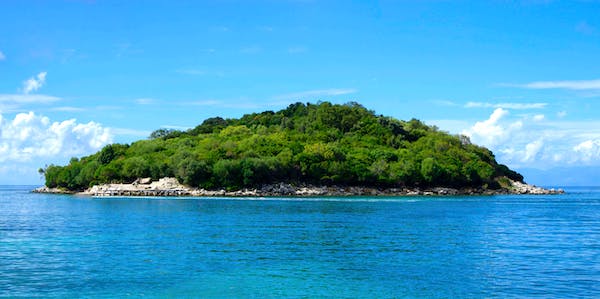Nestled among azure waters and pristine beaches, the idyllic islands are a paradise of sun-kissed beauty. However, as the world’s environmental concerns loom large, these picturesque locales are faced with the challenge of preserving their natural splendor for future generations. In response, many island communities have embraced sustainable living practices that prioritize eco-friendly initiatives. From renewable energy sources to mindful waste management, these islands are leading the charge towards a greener, more sustainable future. Join us as we explore the innovative eco-friendly practices being implemented in the islands and how they are paving the way for a more harmonious relationship between humanity and the environment.

Exploring Sustainable Agriculture in Island Communities
Living in island communities presents a unique set of challenges when it comes to practicing sustainable agriculture. However, there are many eco-friendly practices that island residents can implement to promote a more sustainable way of living. One such practice is rainwater harvesting, which involves collecting and storing rainwater for use in watering crops and gardens.
Another important aspect of sustainable agriculture in island communities is crop rotation. By rotating crops seasonally, farmers can help maintain soil fertility and reduce the risk of pests and diseases. Additionally, composting is a great way to recycle organic waste and create nutrient-rich soil for growing food.
In order to further promote sustainability in island communities, it is crucial to support local farmers and buy locally grown produce. By purchasing food from local farmers, residents can reduce their carbon footprint and support the local economy. Overall, implementing eco-friendly practices in island agriculture is essential for preserving the environment and ensuring a sustainable future for generations to come.
Implementing Renewable Energy Solutions in Tropical Settings
When it comes to sustainable living in tropical settings, implementing renewable energy solutions is key. The islands are known for their abundant natural resources, from sunshine to wind, making them prime locations for eco-friendly practices. By harnessing these resources, communities can reduce their carbon footprint and reliance on fossil fuels.
One effective renewable energy solution for tropical settings is solar power. With ample sunlight year-round, solar panels can efficiently generate electricity to power homes, businesses, and even entire island grids. These panels can be strategically placed on rooftops or in open fields to maximize exposure to the sun. Additionally, solar energy systems can be paired with battery storage to ensure a continuous power supply, even during cloudy days or at night.
Another sustainable practice in island communities is the use of wind turbines to harness the constant sea breezes. Wind power is a clean and renewable energy source that can supplement solar energy production. By diversifying their energy sources, islanders can create a more reliable and resilient power grid. Additionally, investing in energy-efficient appliances and infrastructure can help reduce overall energy consumption and further promote sustainable living in the islands.
Promoting Waste Reduction and Recycling Initiatives in Coastal Areas
Living sustainably is essential, especially in coastal areas where the delicate ecosystems are vulnerable to the impacts of waste pollution. By promoting waste reduction and recycling initiatives in the islands, we can all contribute to preserving the beauty and health of our coastal environments.
One way to practice eco-friendly living is by reducing single-use plastic consumption. This can be achieved by switching to reusable alternatives such as water bottles, bags, and food containers. By making small changes in our daily habits, we can significantly decrease the amount of waste that ends up in our oceans.
Additionally, participating in community clean-up events can make a significant impact on coastal areas. Organizing beach clean-ups and educating others about the importance of proper waste disposal can help raise awareness and inspire others to take action in preserving our island paradise.
Preserving Biodiversity through Responsible Tourism in Island Destinations
In our quest to preserve biodiversity through responsible tourism in island destinations, it is crucial to consider eco-friendly practices that promote sustainable living. By implementing these practices, we can ensure that the delicate ecosystems of these beautiful islands remain protected for future generations to enjoy.
One key eco-friendly practice is reducing single-use plastics. By encouraging visitors to use reusable water bottles and bags, we can significantly reduce the amount of plastic waste that ends up in the oceans, threatening the marine life that calls these islands home. Additionally, supporting local businesses that prioritize sustainability can help promote a more environmentally conscious tourism industry.
Another important aspect of sustainable living in island destinations is conserving water and energy. Encouraging tourists to take shorter showers, turn off lights and air conditioning when not in use, and participate in local conservation efforts can help minimize the impact of tourism on the islands’ natural resources. By taking small steps towards sustainability, we can make a big difference in preserving the biodiversity of these unique and precious island destinations.
The islands are a treasure trove of natural beauty, but as our population grows, so does our impact on the environment. By adopting sustainable living practices, we can help preserve the beauty of these islands for generations to come. From reducing waste to supporting local farmers, there are countless ways we can make a positive impact on the environment. Let’s continue to strive for a more eco-friendly future, not just for the islands, but for our planet as a whole. Together, we can make a difference.

